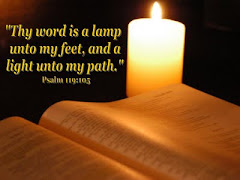 Over at the Catholic Exchange website, there is an excellent article called In Search of the Historical Jesus, by author Louie Verrecchio. Here is an excerpt:
Over at the Catholic Exchange website, there is an excellent article called In Search of the Historical Jesus, by author Louie Verrecchio. Here is an excerpt:One of the most widely known and oft-quoted academic initiatives undertaken to divide fact from fiction among the Scriptural references to the life of Christ is a scholarly effort called the Jesus Seminar. The Seminar, which is comprised of some 150 individual bible scholars, biblical archaeologists and the like, was co-founded by a former Catholic priest, John Dominic Crossan.
.
The group produces Bible translations, publishes position papers, and tours the world giving lectures, all of which outline their collective findings concerning the relative accuracy of those acts and sayings that are attributed to Jesus in Sacred Scripture. For instance, according to the Seminar, claims that Jesus walked on water and raised Lazurus from the dead are categorized as wholly unsustainable.
The group produces Bible translations, publishes position papers, and tours the world giving lectures, all of which outline their collective findings concerning the relative accuracy of those acts and sayings that are attributed to Jesus in Sacred Scripture. For instance, according to the Seminar, claims that Jesus walked on water and raised Lazurus from the dead are categorized as wholly unsustainable.
The secular media often behaves like a kid in a candy store when it comes to such "findings;" eagerly portraying those who believe that these miracles really took place as fanatical and naïve. I am sorry to say, however, that the media are not the only ones who eat this stuff up.
.
"Scholarly" endeavors such as those undertaken by the Jesus Seminar are not limited to the confines of non-Catholic and secular institutions as even some professors teaching in our Catholic universities and seminaries have entered into the "historical Jesus" debate as well, sewing the seeds of doubt and division in their classrooms along the way.
"Scholarly" endeavors such as those undertaken by the Jesus Seminar are not limited to the confines of non-Catholic and secular institutions as even some professors teaching in our Catholic universities and seminaries have entered into the "historical Jesus" debate as well, sewing the seeds of doubt and division in their classrooms along the way.
This has long been one of my personal pet peeves -- about the tone and timbre of much of the Catholic Bible study materials used by the average Catholic, usually foisted upon them by mostly well meaning local parish or diocesan catechists (their having been taught with these resources themselves and considering them "up to date" and "modern"). This includes incorporating into Bible studies or Scripture classes ideas from the types of scholars discussed above and even referencing and recommending their books. While sometimes the errors found there can be subtle, deep down they are faith-killers for the person who instead was looking to the Scriptures to strenghten and deepen their faith. When that person runs into the type of skeptical, anti-supernaturalist and speculative drivel found in this type of literature, often the response is either "Why bother?" and give up Scripture reading completely, or--worse--conclude that Christianity is based on a series of lies or fables and entirely give up on the Faith as well.
The proper approach of course is to, yes, utilize historical (even critical scholarship) as just one Scripture study tool among many--and as an entirely subserviant tool to the literal meaning of the text and to the analogy of Faith --that is, in the light of what the Church has always taught about the Scriptures and within the rest of Church teaching.



No comments:
Post a Comment